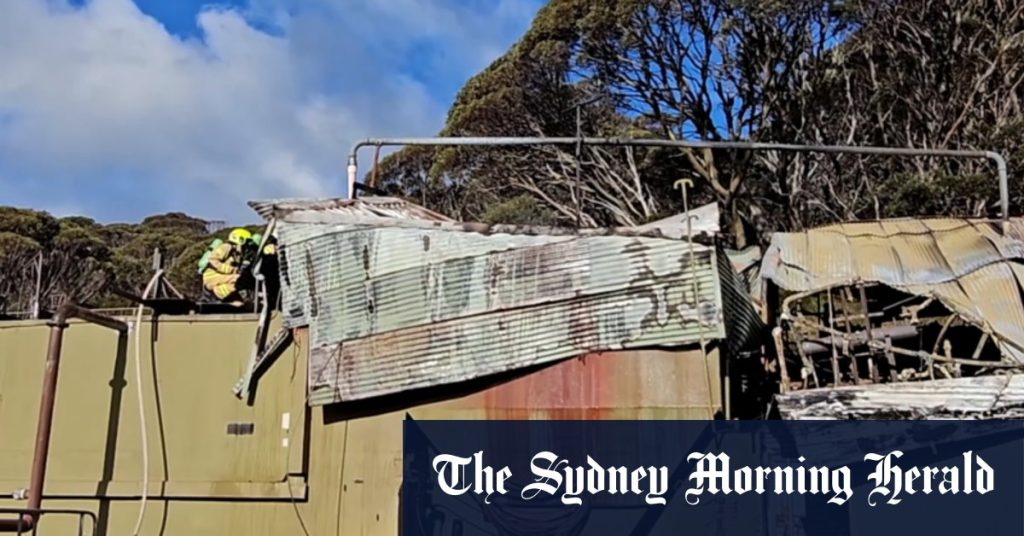A fire has ravaged the sewage treatment plant at Charlotte Pass, causing extensive damage to the facility. The incident, which occurred on May 23, 2024, resulted in the destruction of critical infrastructure that is essential for the proper treatment of sewage in the area. The cause of the fire is currently unknown, and authorities are investigating the incident to determine the circumstances that led to the blaze.
The footage captured by Fire and Rescue NSW shows the severity of the fire as it engulfed the sewage treatment plant, leaving behind a trail of destruction. The flames consumed the building, causing significant damage to the structure and the equipment inside. The incident highlights the vulnerability of critical infrastructure to such disasters and underscores the importance of disaster preparedness and response measures in safeguarding essential services.
The destruction of the sewage treatment plant poses a significant challenge for the community at Charlotte Pass, as it disrupts the proper treatment of sewage and could potentially impact public health and environmental safety. Without a functioning sewage treatment plant, there is a risk of contamination and pollution, which could have far-reaching consequences for the local area. It is crucial for authorities to address the situation promptly and implement alternative measures to mitigate the impact of the fire.
The incident serves as a stark reminder of the importance of investing in robust infrastructure and emergency response capabilities to prevent and mitigate the impact of disasters such as fires. It underscores the need for contingency plans and resilience-building measures to ensure the continuity of essential services in the face of unexpected events. The destruction of the sewage treatment plant at Charlotte Pass highlights the vulnerabilities of critical infrastructure and the consequences of inadequate preparedness in managing such crises.
Authorities must work swiftly to assess the extent of the damage caused by the fire and develop a response plan to address the immediate and long-term consequences of the incident. This may involve deploying temporary sewage treatment solutions, conducting environmental assessments to gauge the impact of the fire, and implementing measures to prevent contamination and protect public health. The community at Charlotte Pass will rely on the coordinated efforts of emergency responders, government agencies, and other stakeholders to navigate the challenges posed by the destruction of the sewage treatment plant.
As the investigation into the cause of the fire continues, it is crucial for authorities to prioritize the restoration of essential services and the implementation of preventive measures to mitigate the risk of similar incidents in the future. The destruction of critical infrastructure such as the sewage treatment plant at Charlotte Pass underscores the need for proactive risk management strategies and investment in disaster resilience to safeguard communities and infrastructure from the impact of disasters. By learning from this incident and taking proactive steps to strengthen emergency preparedness, authorities can enhance their capacity to respond effectively to emergencies and protect the well-being of the community.













